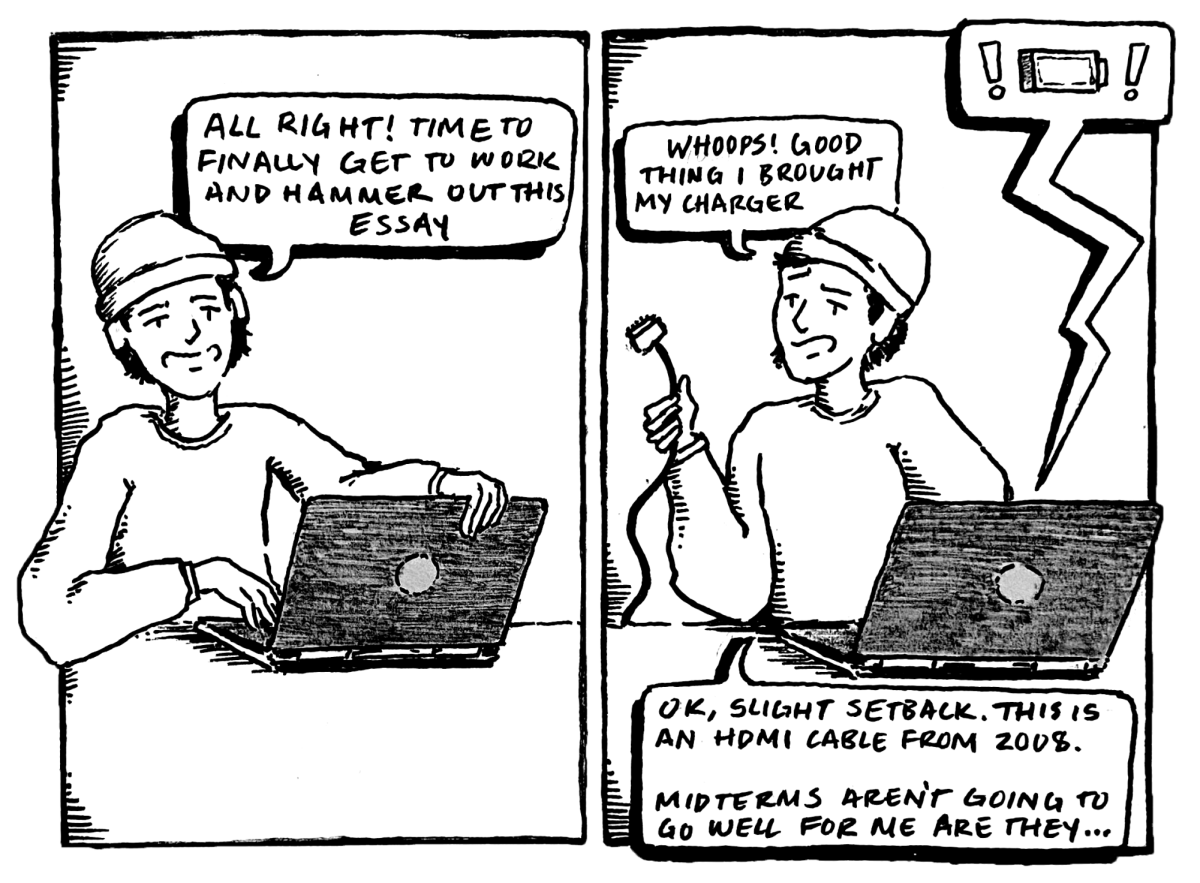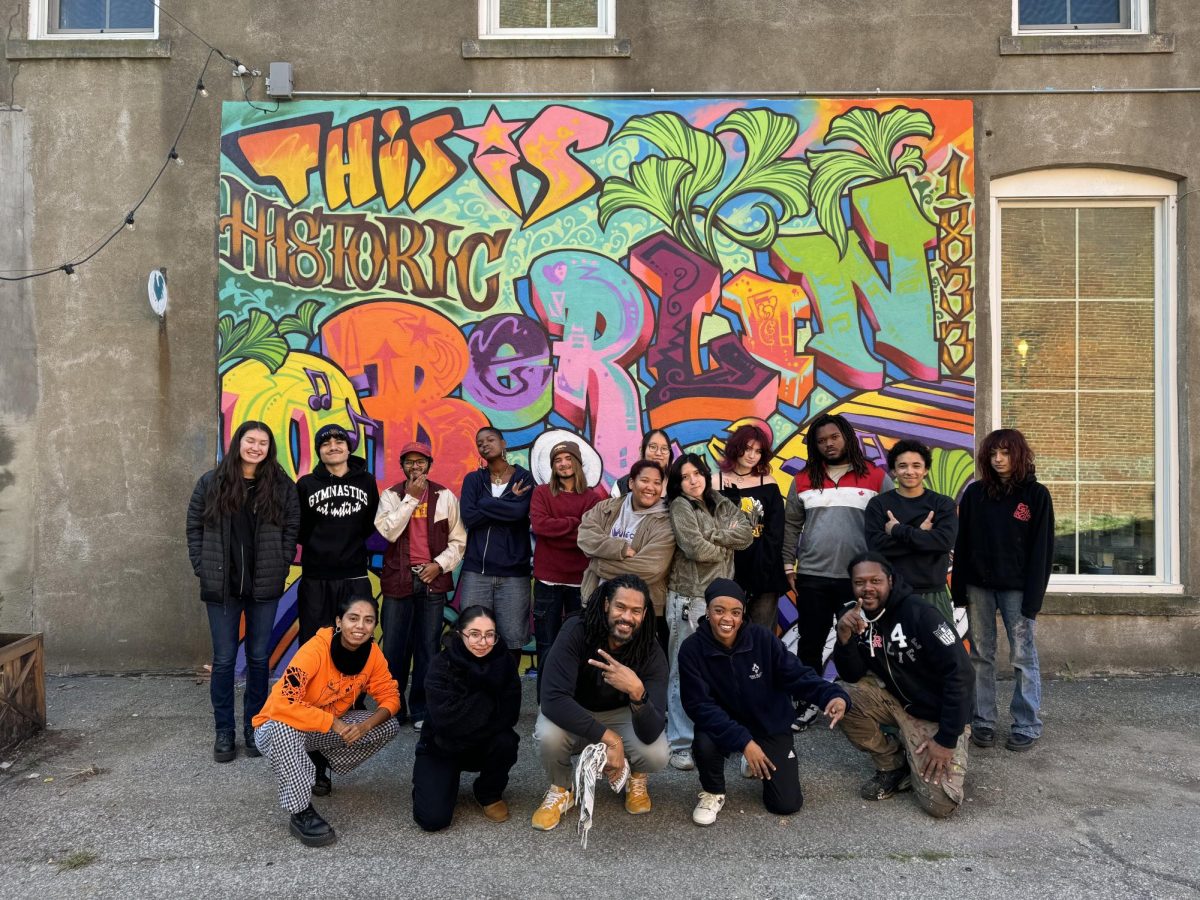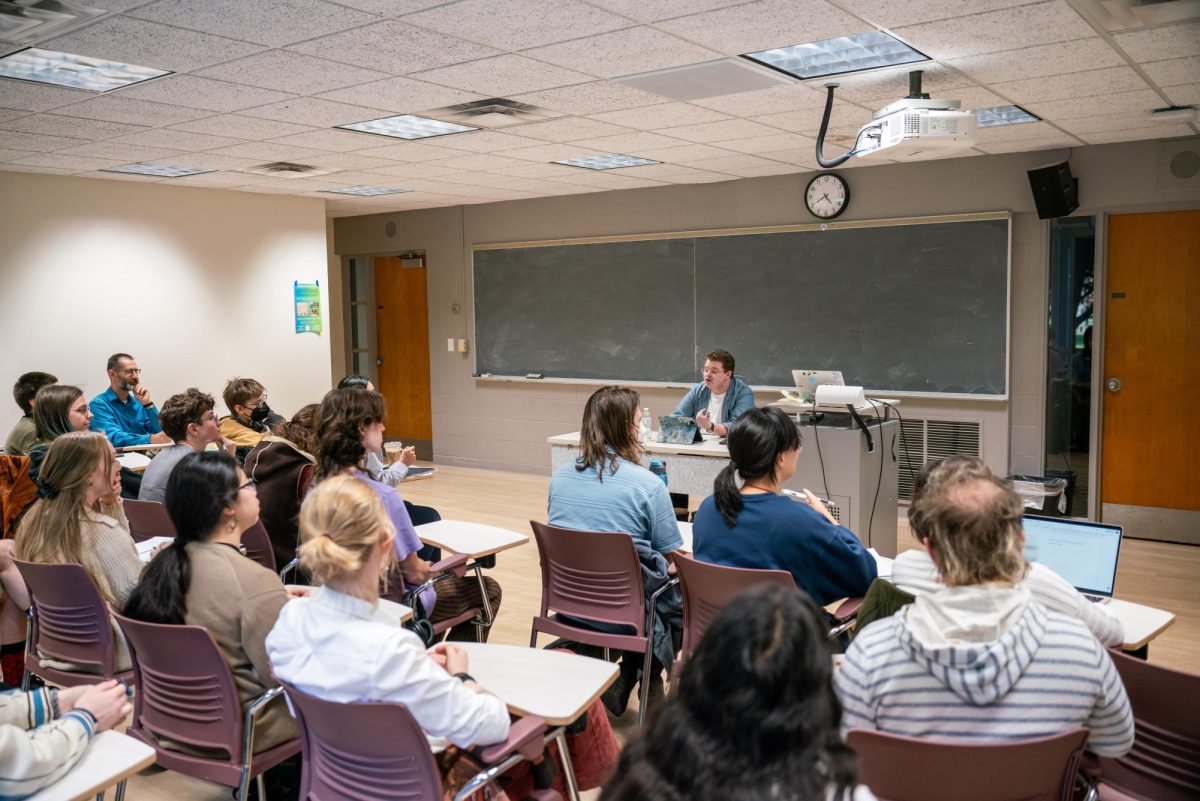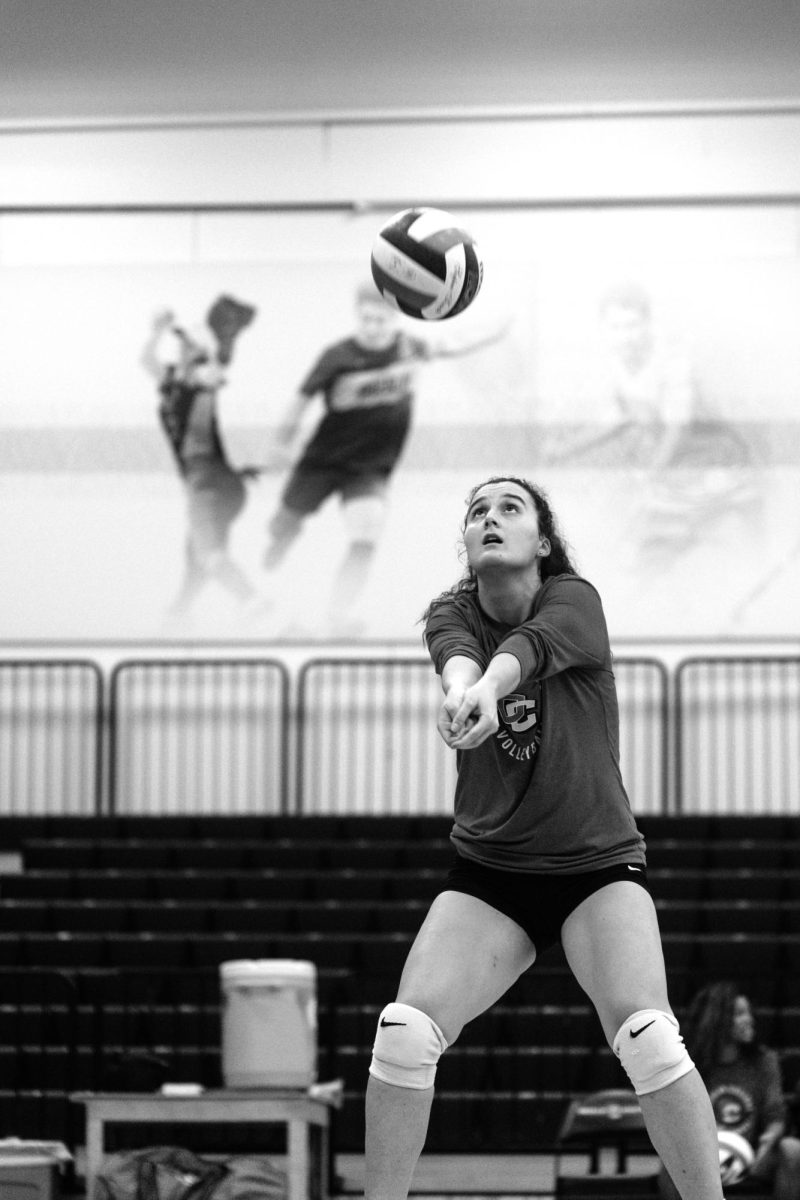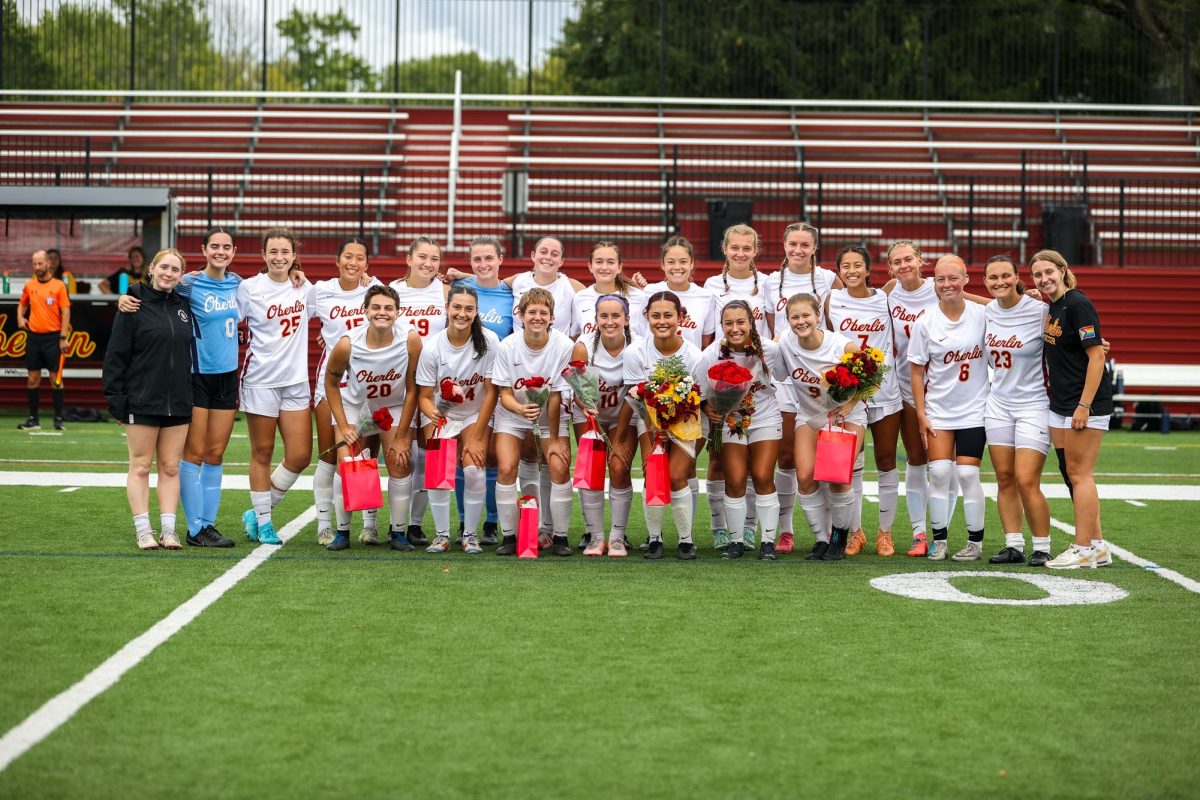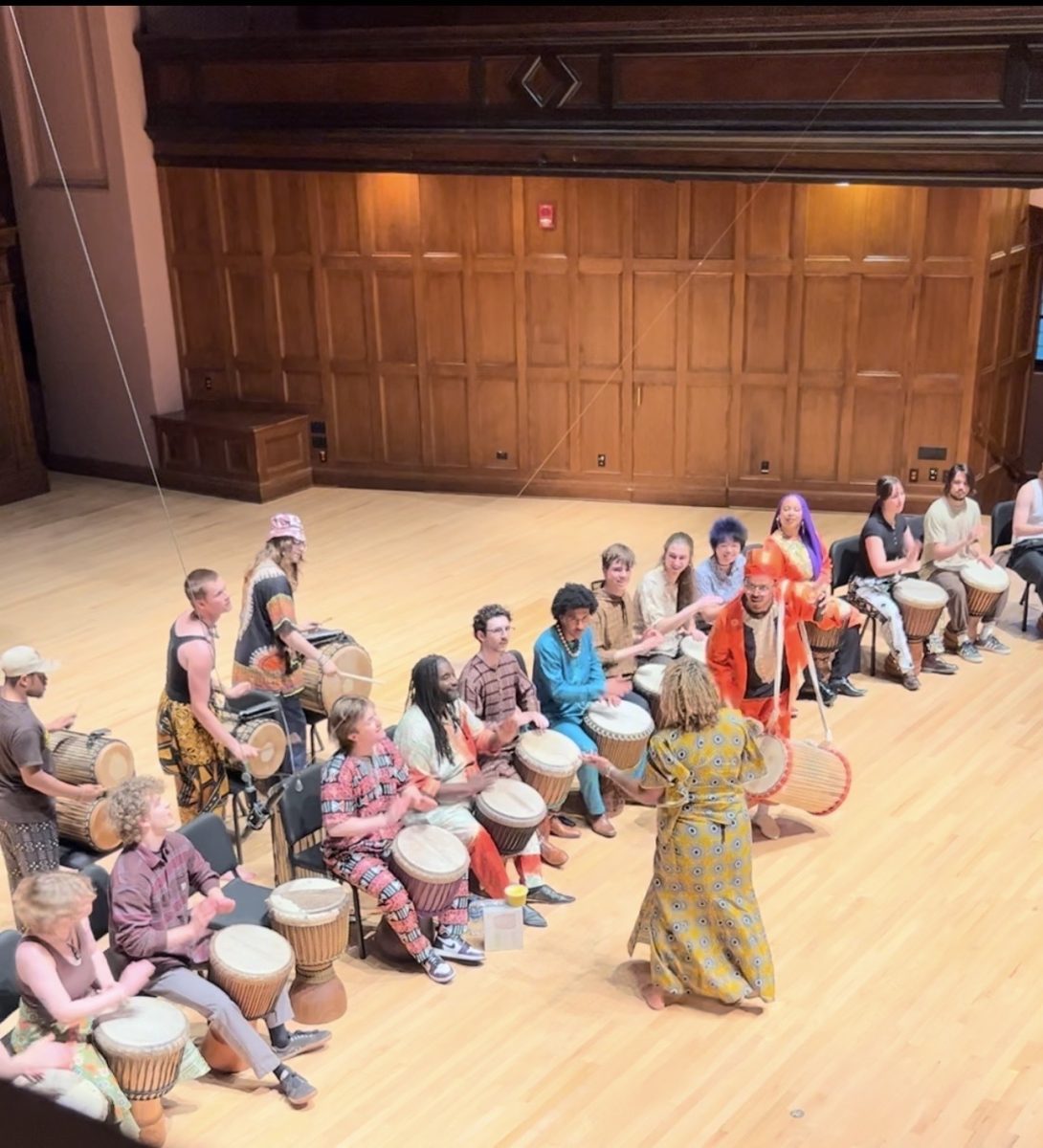Slam Poetry Gains Momentum on Campus
October 10, 2014
Oberlin’s student-run slam poetry organization, known as OSlam!, is undergoing a critical transformation to manage an overwhelming interest in slam poetry on campus. Last year’s OSlam! participants began auditions Thursday to select finalists for eight additional spots on their performance team, and will continue the process tonight. While the OSlam! club, which meets on Monday evenings to workshop poems and performance, will remain open to all writers, this exclusive performance team will appear at events on campus, collaborate with other student organizations and travel to the College Unions Poetry Slam Invitational.
OSlam! is involved in the slam poetry movement, which first became popular in the 1990s. The term “slam” refers to a type of competition in which poets recite original work with social justice-related themes. Slam poets are crafts-people of meticulously metered and passionate verse, and seasoned performers typically write about vulnerable topics, often recounting highly personal stories to large audiences. Slam poetry is a performance art and is intended to be delivered orally in the same deliberate manner an actor would perform an impassioned Shakespearean monologue.
OSlam!, which just two years ago consisted of six poets who would convene weekly at one student’s house, faced a challenge this fall when more than 60 students showed up unexpectedly at their general interest meeting. With so many prospective members, the team had difficulty achieving the acute vulnerability that is so crucial to OSlam’s existence, and so found auditions to be their only option.
For College sophomore, Creative Writing major and OSlam! Treasurer Zachariah ClaypoleWhite, OSlam! was a perfect fit. “I wanted a space to write in, and I wanted to work on bringing more aspects of performance into my poetry,” he said. Claypole-White’s intro to poetry T.A. introduced him to the club at the beginning of his freshman year, and he soon became part of a close-knit community of fellow writers and performers through his involvement with OSlam! “I think OSlam! is an amazing community, and I love everyone who’s involved with it,” he said, later describing OSlam! as being “like a family.”
OSlam! founder and College junior Alison Kronstadt, who currently co-chairs the group alongside College junior B.J. Tindal, was the president of her high school slam poetry club and wanted to continue writing and performing on campus. As a first-year at Oberlin last fall, she had heard rumors that there was a slam poetry club, but when no actual group emerged, she and College junior Hannah Rosenberg, a fellow poet, decided to start one of their own.
Claypole-White said OSlam! has since its inception striven to uphold a spirit of inclusivity and celebrate individual uniqueness; these qualities have strengthened the bond between its members and driven the creation of poetic content. “Everyone came into OSlam! with different backgrounds — people who’ve been involved [with slam poetry] for a long time and people who are just getting into it,” he said. Tindal, too, commented on the openness of the OSlam! environment. “Every time you sit down to write, it is coming from a very personal place inside of you, so you have to take that and speak it in front of whoever is in the room,” he said. “What we do our best to do is create a space that is open and allows for people to make mistakes.”
Kronstadt said that the unique vulnerability of being immersed in an OSlam! workshop is satisfying and cathartic. “Mondays are hard days,” she said. “I go [into our Monday club meetings] feeling like, ‘Ugh, college,’ and leave feeling like I am the luckiest person in the world that I get to be here listening to these people be so brave and say such beautiful things, and that I’m helping to make that happen.”
Tindal said he plays a lot with sound in his work and talked about poetry as a narrative art form. “I’m just inspired by this idea of storytelling,” said Tindal, “and that very small moments can spark an entire poem or an entire story … and getting to play with your own story is very fun and empowering.”
“Slam is to me, first and foremost, a medium for people who have not been allowed to tell their stories,” said Kronstadt. She emphasized the importance of “fostering an environment where all levels of storytelling are accepted.”
According to Kronstadt, the vulnerability she witnesses in writers’ work is not exclusive to Oberlin slam poets but “comes with the territory of the art form,” which is why OSlam!’s leaders are doing their best to preserve the intimacy of last year’s experience. “I think [with the influx of applicants] we would be doing everybody a disservice to keep things going the way they were,” she said.
“OSlam! is definitely going through growing pains because … last year … we played [our meetings and programming] by ear,” Claypole-White said. He added that, because of increased interest, OSlam! will “structure their organization a bit more formally.”
“I am a really big believer that learning how to hear a poem and give good, smart, kind, constructive feedback makes you a better poet and better person,” Kronstadt said, which may explain why OSlam! has decided to make the team more selective. “You can’t give good, compassionate feedback to really personal poetry in a room full of strangers,” she said.
Those who audition for the troupe will be able to write about what OSlam! means to them and perform one poem for a panel of current OSlam! members. “I’m looking forward to getting to be blown away,” Kronstadt said. “I just wanna be like, ‘I am a canvas! Write some poetry on me!’”
Tindal’s hope for OSlam! is not to “just have a presence on [Oberlin’s] campus, but a purpose on campus of starting dialogue. I think poetry is a really great avenue and venue to do that.”
“Getting to work with other artists — that is the dream,” Kronstadt said. “When I work with the people I’ve worked with since last year … when things are going well, we’re in the same headspace, but still bringing different thoughts to that — but we’re thinking about the work so intensely that we’re inside of it and able to make it better, because it is the house that we live in.”








